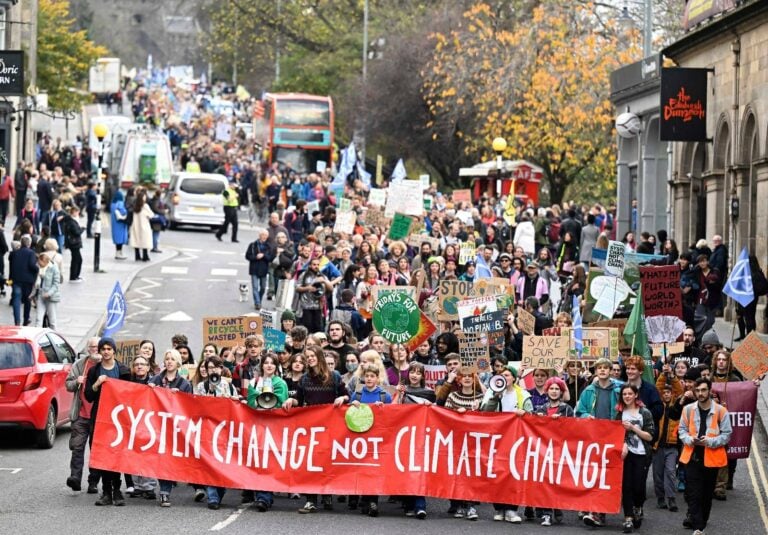Report on the financial sector in Indonesia

The private financial industry plays a pivotal role in the functioning of many economies in the world. Banks, insurance companies and other less well-known financial service providers intermediate capital flows for governments, corporations and individuals, which affect people’s lives and the choices available in society. By raising, allocating and pricing capital and providing risk coverage, they have a major influence on: who in society gets access to financing and protection against risks; what activities by governments, corporations or individuals get financed or protected against risks; how financial services benefit the rich or the marginalized, sustainable development or environmental destruction. The private financial sector has several types of financial services that affect societies as well as the international economy. Regulating and supervising financial firms and their diverse services is difficult due to the complexity of financial ‘products’ and risk management, and due to the speed at which financial firms facilitate huge amounts of capital to flow around the world. Moreover, the private financial industry has successfully argued for national and international free markets and legal frameworks that prevent too much intervention by national and international authorities. After crises like the Asian financial crisis in 1997-98, there was a lot of talk about reform of ‘the’ financial architecture. It is often overlooked that the dominant players in international financial system are private financial services providers, including the ‘institutional investors’. Because there is much less public knowledge about financial firms than about governmental financing institutions like the World Bank, this financial sector report focuses on private financial firms including banks, insurance companies, investment banks and pension funds. The report intends to provide basic information about: the mechanisms and the operation of private financial services (chapter 1), the structure and the major players in the financial services market, and trends and strategies in the financial industry (chapter 2), important issues and concerns for developing countries, based on a case study of Indonesia (chapter 3), initiatives taken around corporate social and environmental responsibility (chapter 4), how the private financial industry is regulated and supervised at the international level (chapter 5), how trade in financial services and investment by financial firms is regulated by the WTO agreement on services (GATS) and what the risks are for developing countries (chapter 6). This report focuses on trends, structures, regulations and corporate responsibility initiatives at the international level. The scope of the report did not allow for analysis of each country. Only an Indonesian case study by Business Watch Indonesia on the financial services industry is included to provide a useful developing country insight. Each chapter strives to indicate the problem areas in every financial sub-sector. The focus is on those aspects that negatively affect society, developing countries, poverty eradication, and sustainable development. These are indicated as “critical issues”. The conclusions of each chapter review the main critical issues and topics. In this way, the report would like to inform and analyze problems surrounding the private financial industry for organizations, individuals and institutions which: are involved with corporations, big projects and privatization, and their financiers, which destroy the environment and violate human rights; are campaigning about trade agreements, such as the GATS agreement, in which opening of the financial services market is on top of the agenda without any democratic scrutiny; want to free the world of unstable international capital flows and complex financial services that undermine entire economies and people’s lives; want to solve debt problems of developing countries, which reduce government budgets intended for eradicating poverty, social improvements and promoting environmentally friendly development; want to avoid the widening gap between rich and poor in all countries and work on alternatives to the current globalized free market economy; understand what goes on behind corporate scandals such as Enron and Parmalat. The report is published by the Centre for Research on Multinational Corporations (SOMO), a non-profit research institute that advises non-governmental organizations and trade unions in the Netherlands and worldwide. Research for this report was based on information from literature, data bases, NGO analysis and input at workshops in Cancun (12 September 2003) and The Hague (19 November 2003), and last but not least the sector, country and corporate reports commissioned to Business Watch Indonesia. The expertise of SOMO researchers and writing by Myriam Vander Stichele lead to the analyses and results of this report. Thanks go to Martin Koehler (Campagna per la reforma della Banca Mondiale), Peter Wahl (WEED), Johan Freyns (Bank Track), and others who commented and supported the writing of the report. SOMO’s research of the financial sector is part of a four-year program of research of sectors of importance to civil society, poverty eradication and sustainable development, financed by the Ministry of Foreign affairs in the Netherlands. Financial support for researching the financial sector also came from NOVIB (NL).
Partners
-
SOMO
Publication

Related news
-
Why share buybacks are bad for the planet and peoplePosted in category:Opinion
 Myriam Vander StichelePublished on:
Myriam Vander StichelePublished on: Myriam Vander Stichele
Myriam Vander Stichele -
 The Netherlands: European champion share buybackPosted in category:Long read
The Netherlands: European champion share buybackPosted in category:Long read Rodrigo FernandezPublished on:
Rodrigo FernandezPublished on: -
 The trillion-dollar threat of climate change profiteersPosted in category:Long read
The trillion-dollar threat of climate change profiteersPosted in category:Long read Myriam Vander StichelePublished on:
Myriam Vander StichelePublished on:

